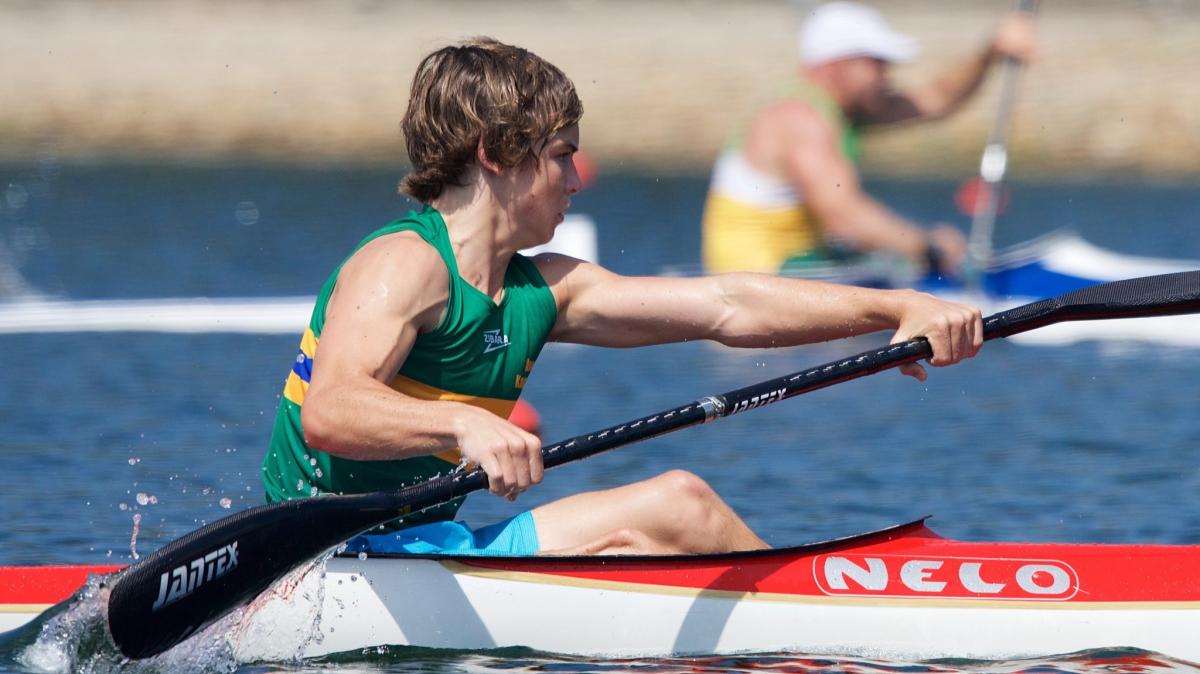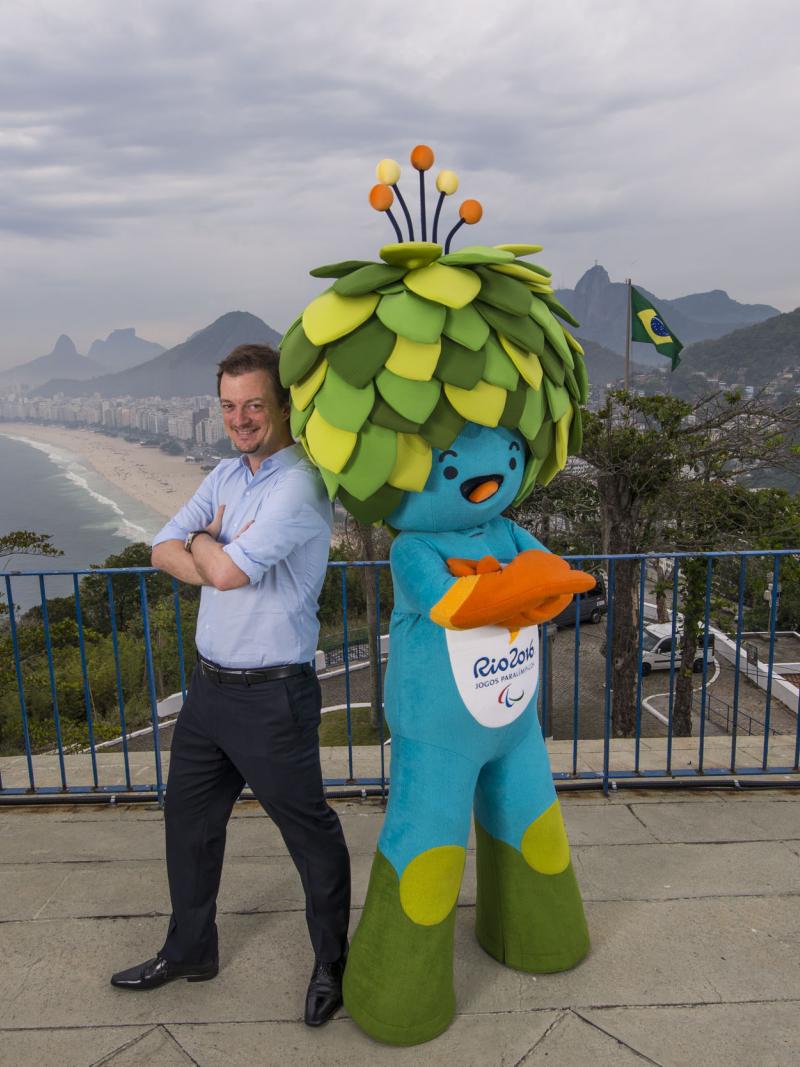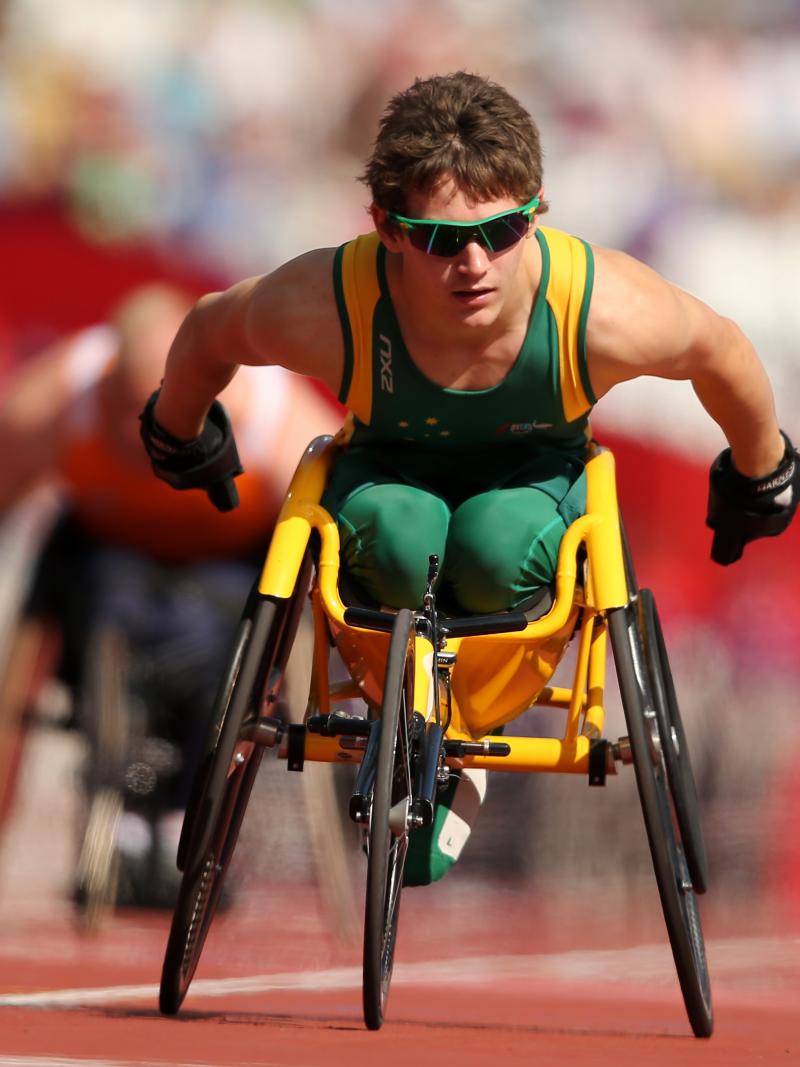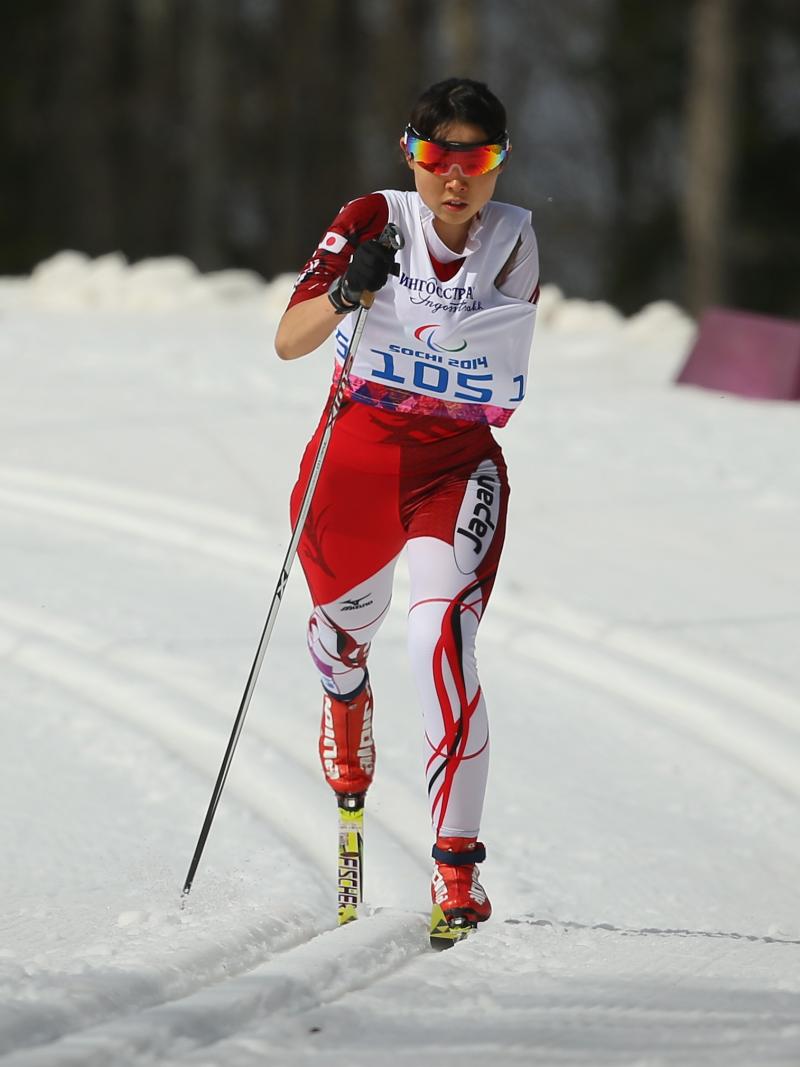Faces of the future: Australia’s Dylan Littlehales
At just 15 years old, the para-canoeist is already competing at the World Championships in his sport. 12 Sep 2015
At just 15 years old, para-canoeist Dylan Littlehales is already competing at the World Championships in his sport.
The newest sport to the Paralympic Games programme – para-canoe – is already serving as a platform for one of the Paralympic Movement’s newest rising stars.
Australia’s Dylan Littlehales, just 15 years old, embarked on his first overseas trip in August when he competed at the International Canoe Federation (ICF) Para-Canoe World Championships in Milan, Italy.
He was the youngest competitor in Milan by three years, and the youngest in his classification by five years.
Littlehales was diagnosed with a limb deficiency in his right leg at birth. He is missing some crucial ligaments in his right knee and some of the bones in his right leg, which has been growing much slower than his left. Despite having undergone nearly 20 surgeries, he is still able to walk. But he does not have as much mobility or strength in his right leg.
He competes in the KL3 class, which is for athletes with trunk function and partial leg function. They are able to sit with their trunk in a flexed position and use at least one leg or prosthesis.
At his World Championships debut, even after a faulty start in his final race, Littlehales finished eighth in the B final of the men’s KL3 200m.
“I tried not to look at the person next to me and instead just look straight down,” Littlehales said of his start. “It was exciting and nerve-wracking all at the same time, but I really got some good experience over there.”
Growing up, Littlehales was a swimmer. He was introduced to para-canoe by his uncle, Australian canoe slalom head coach Mike Druce, and instantly got hooked.
“I picked up the sport at the perfect time, because right after I started a new canoe club started about 20 minutes away from me,” Littlehales said. “They had a bunch of boats and paddles, and then I got my own stuff eventually.”
“It is difficult to be able to stay in the boat at first, just to sit fine in it can be a pretty physical thing. After learning that, it is more of a mental thing and building up physical strength.”
These days, Littlehales typically trains twice a day with coaches Paul Hutchinson and David Birt at the Avoca Kayak Club in New South Wales, with his development also overseen by Australia’s national para-canoe coach Andrea King.
Littlehales said he likes to model his style on the water after two Australian able-bodied paddlers – world champion Lachlan Tame and U23 national team member Rob McIntyre.
He is out on the water six days a week, hits the gym three days a week and incorporates swimming into his weekly regimen when he can.
The top six finishers in each event at this year’s World Championships earned a quota place for their respective countries at the Rio 2016 Paralympics. The remaining four quota places will be awarded at the 2016 World Championships next May in Duisburg, Germany, meaning Littlehales still has an outside shot on paddling his way to Brazil as his times usually fall between 10th and 15th best in the world.
No matter the outcome next year, though, Littlehales is keeping everything in perspective.
“Tokyo 2020 is where I actually want to be pushing podium,” Littlehales said. “That is where the big one is for me.”

 Facebook
Facebook
 Instagram
Instagram
 Twitter
Twitter
 Youtube
Youtube
 TikTok
TikTok
 Newsletter Subscribe
Newsletter Subscribe



